Analyzing Group Dynamics: A Case Study in Professional Studies 5CF006
VerifiedAdded on 2023/04/22
|10
|1033
|128
Presentation
AI Summary
This presentation provides an analysis of group work dynamics, communication skills, ethical considerations, and power issues within a healthcare setting, focusing on a case study involving an individual named Richard. It applies theories such as Tuckman's theory, the Punctuated Equilibrium Model, and Balance Theory to understand group formation and performance. The presentation also critically examines the importance of communication skills in healthcare, particularly in addressing Richard's inability to communicate effectively, and discusses ethical responsibilities of healthcare providers. Furthermore, it addresses power dynamics within the team, highlighting the role of senior staff in supporting and encouraging junior employees. The presentation concludes by reflecting on personal and professional skills necessary for effective engagement in both individual and group activities, such as decision-making, time management, stress management, and listening skills, emphasizing the need for continuous learning and improvement in these areas.
1 out of 10
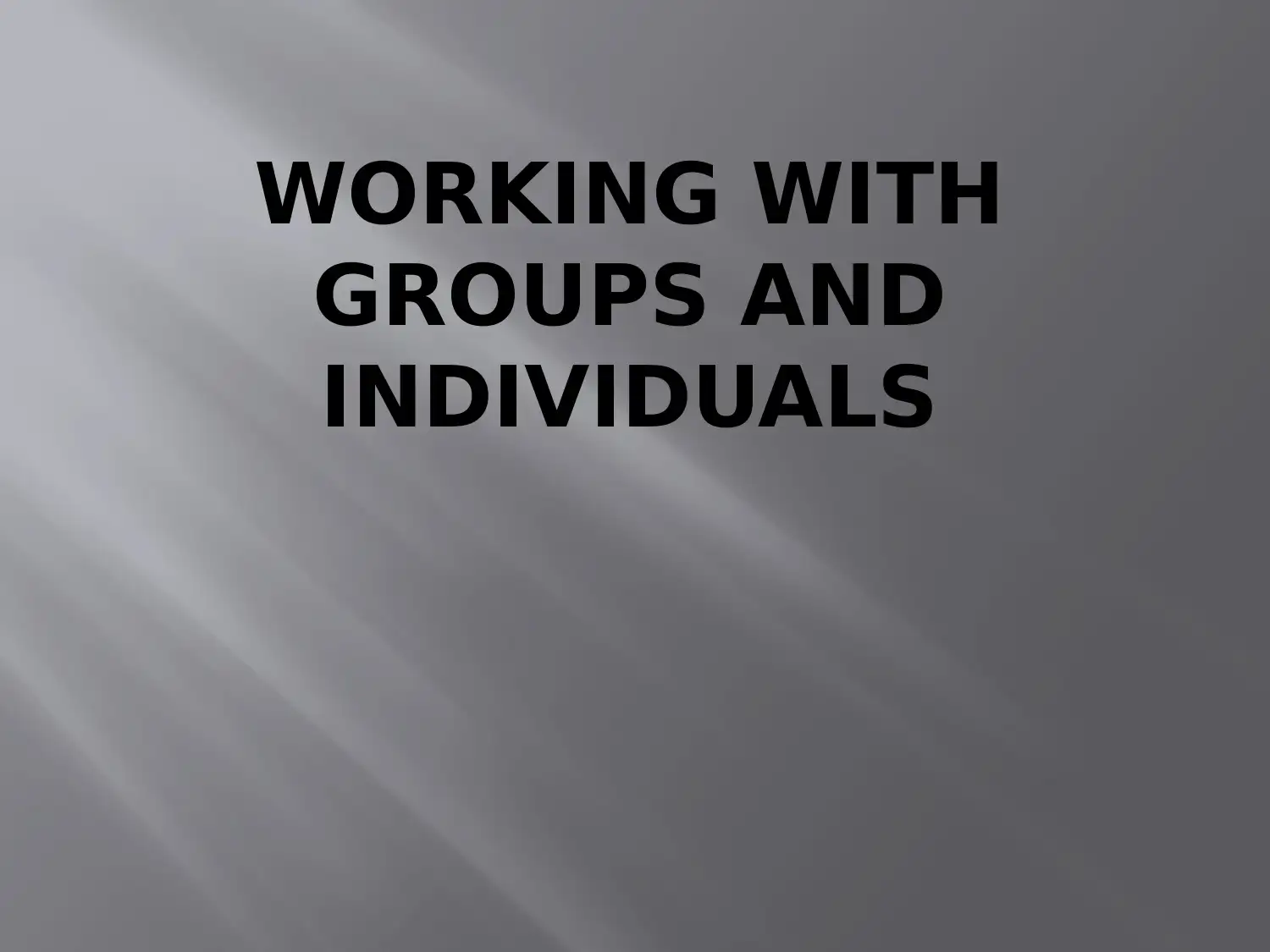
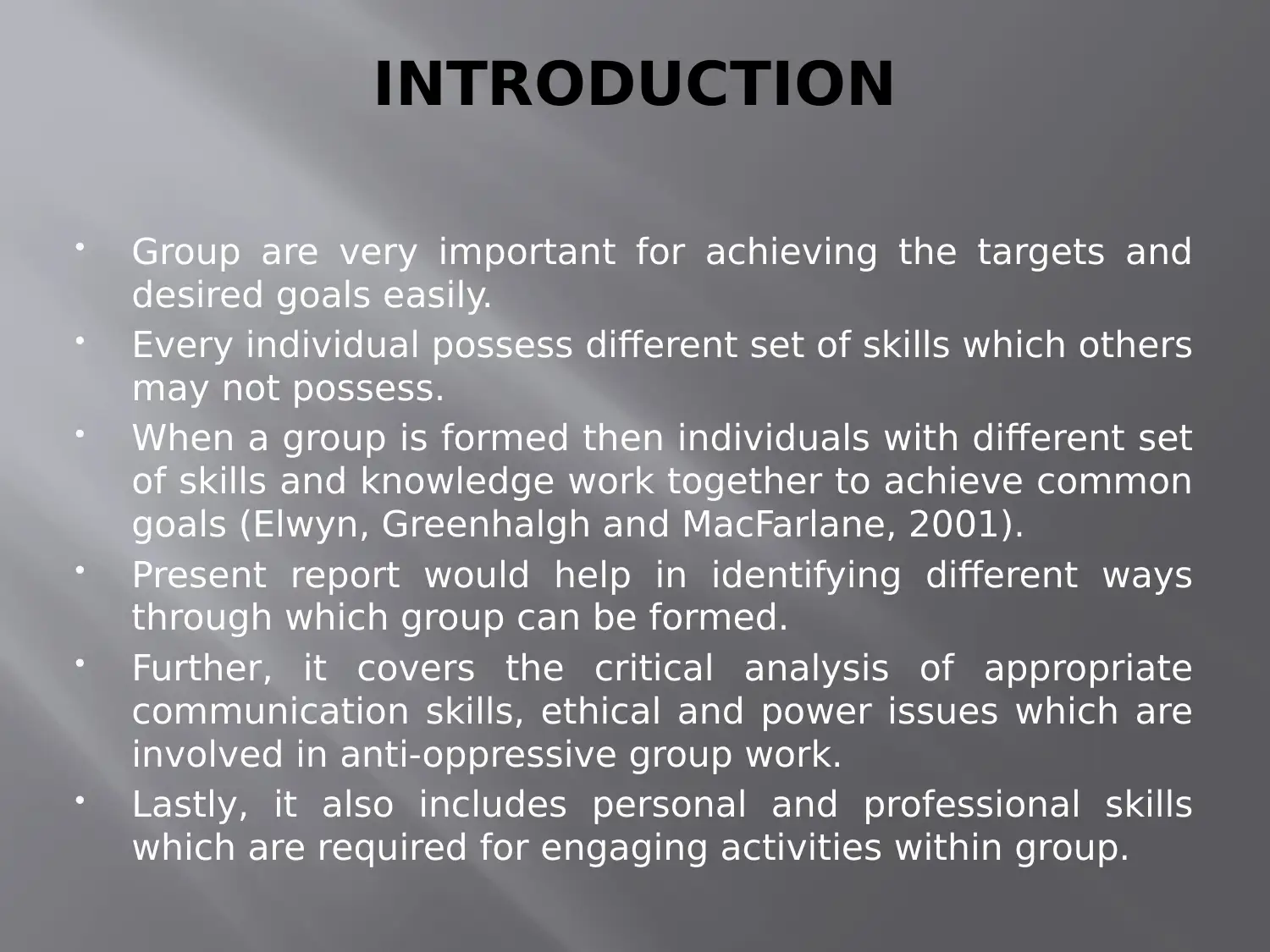
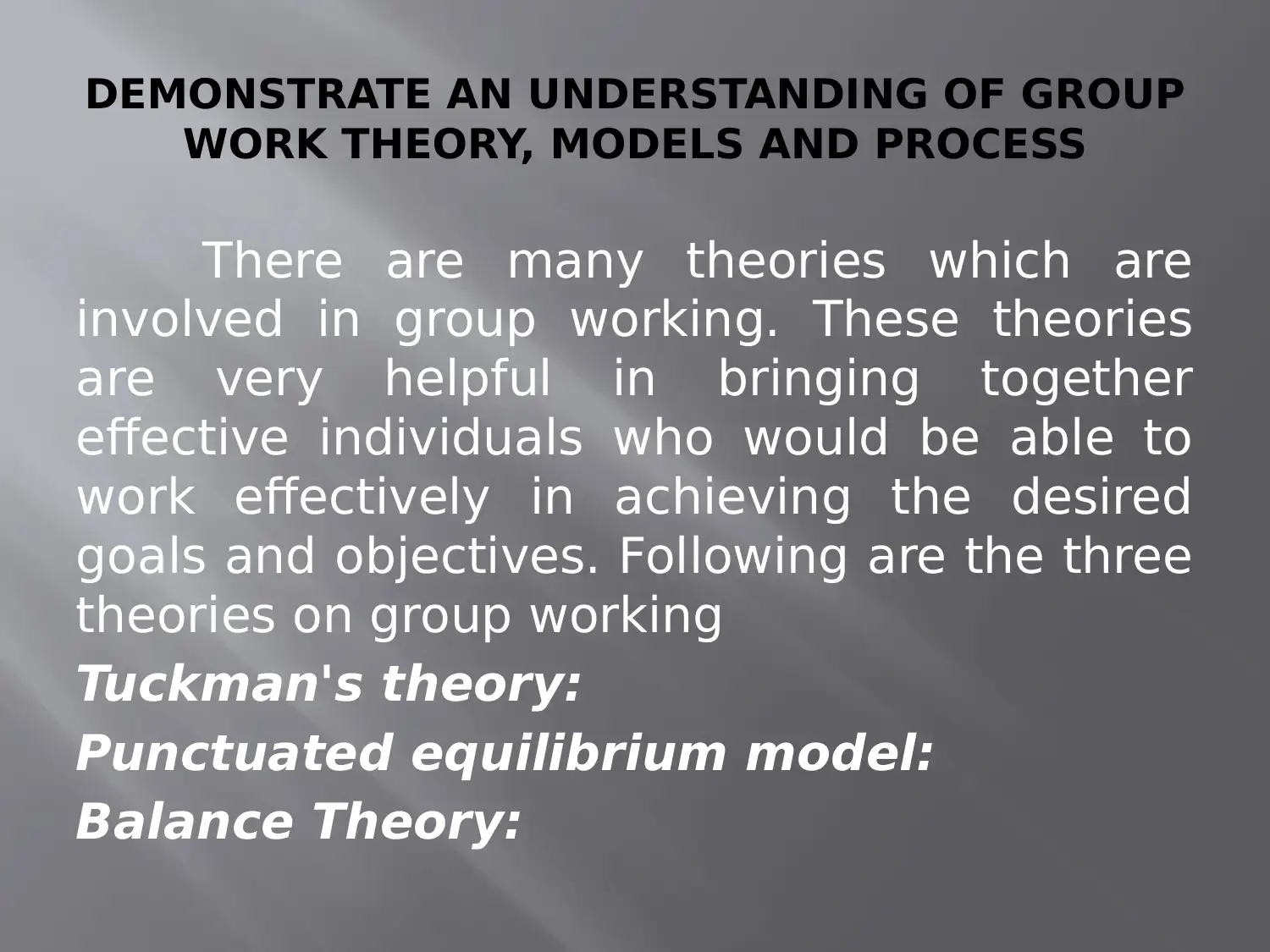

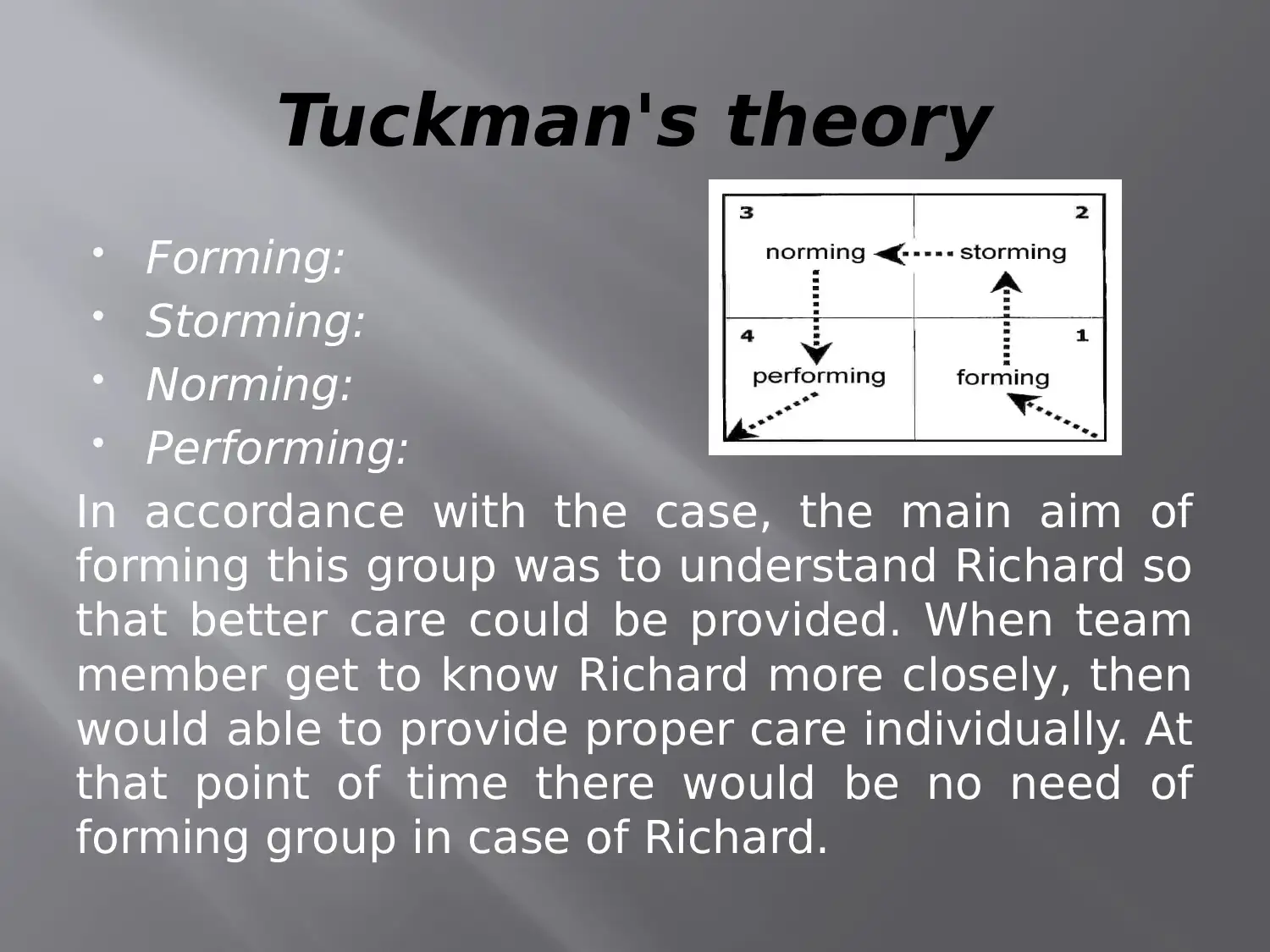
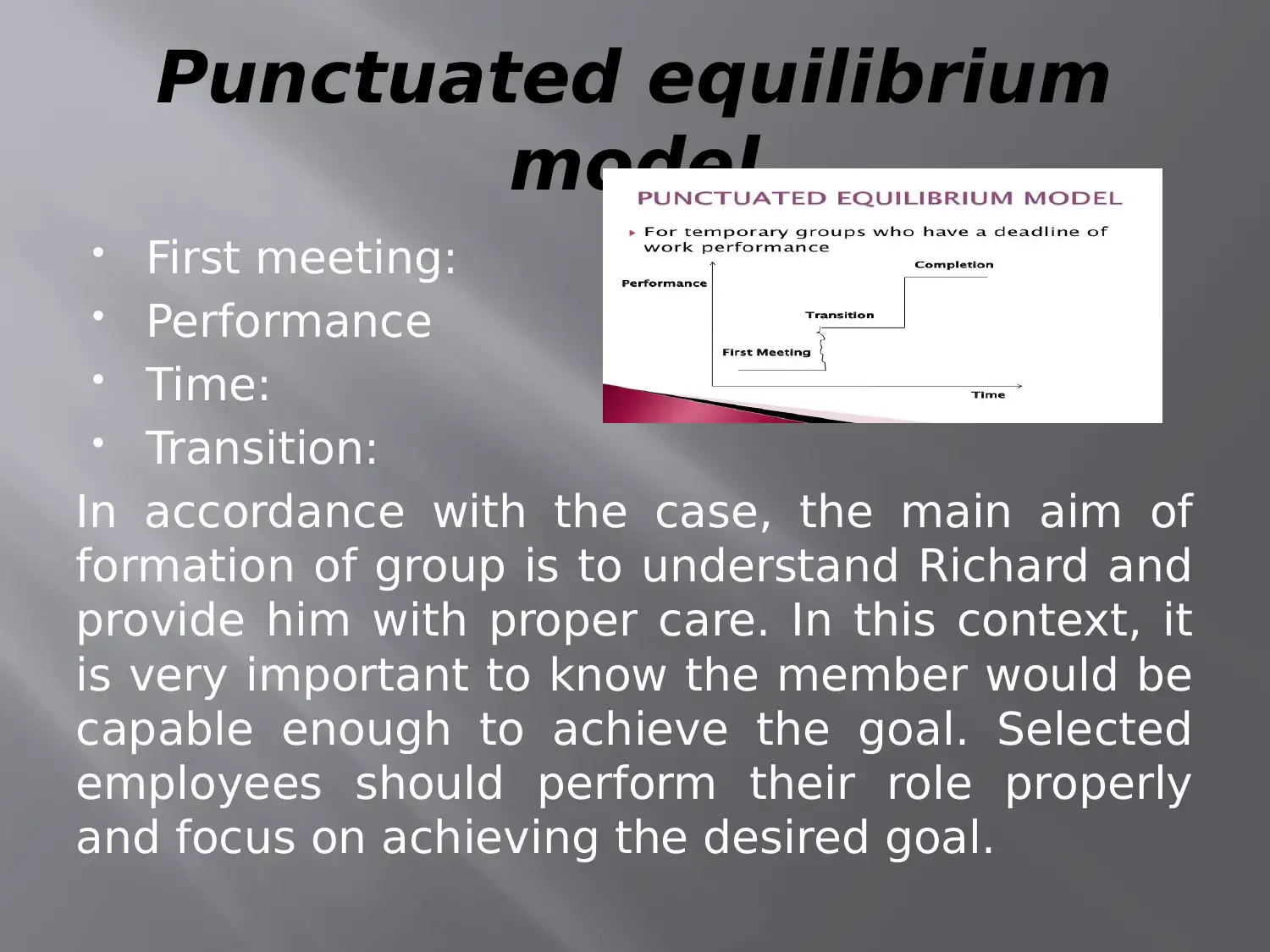
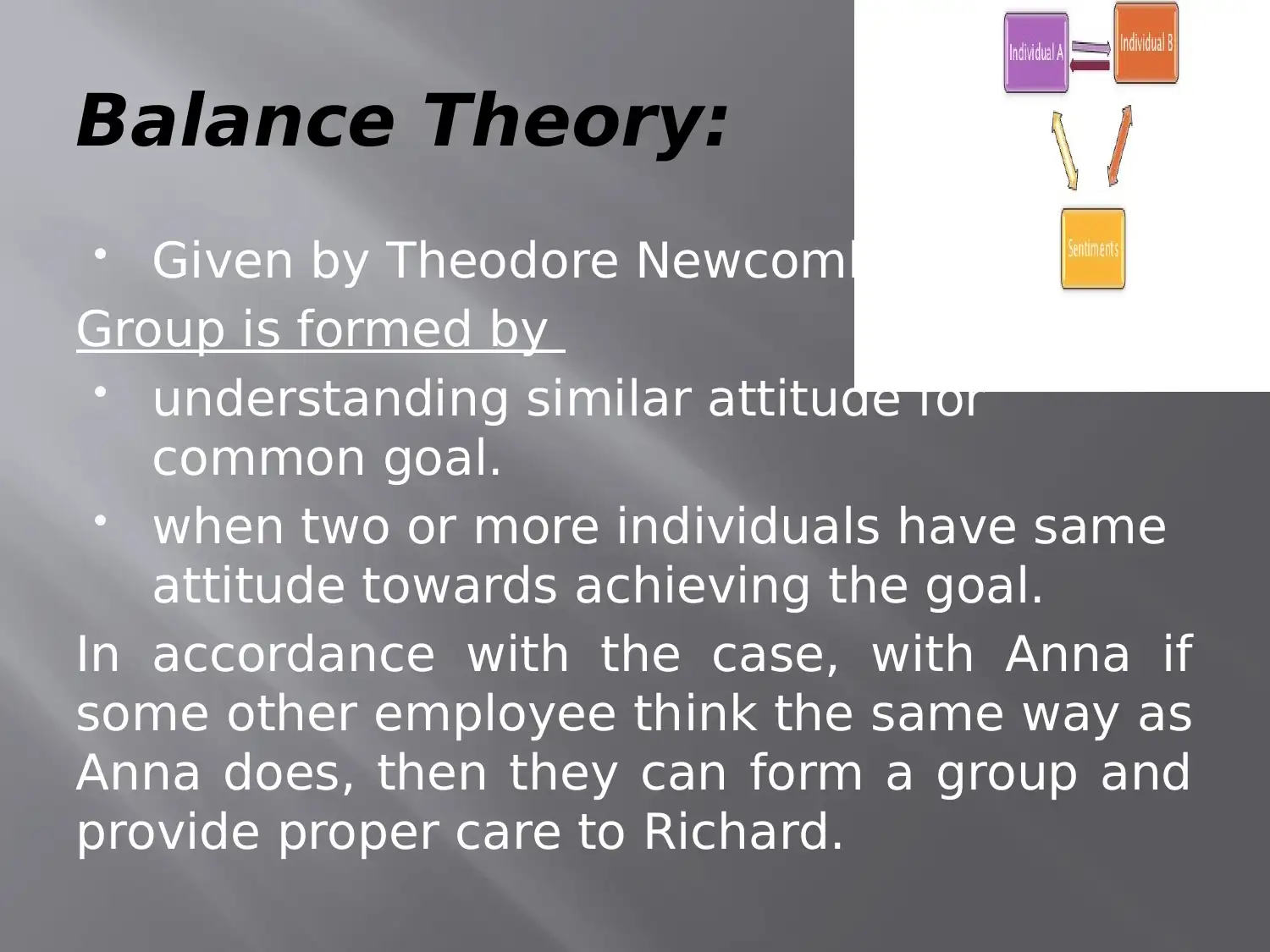
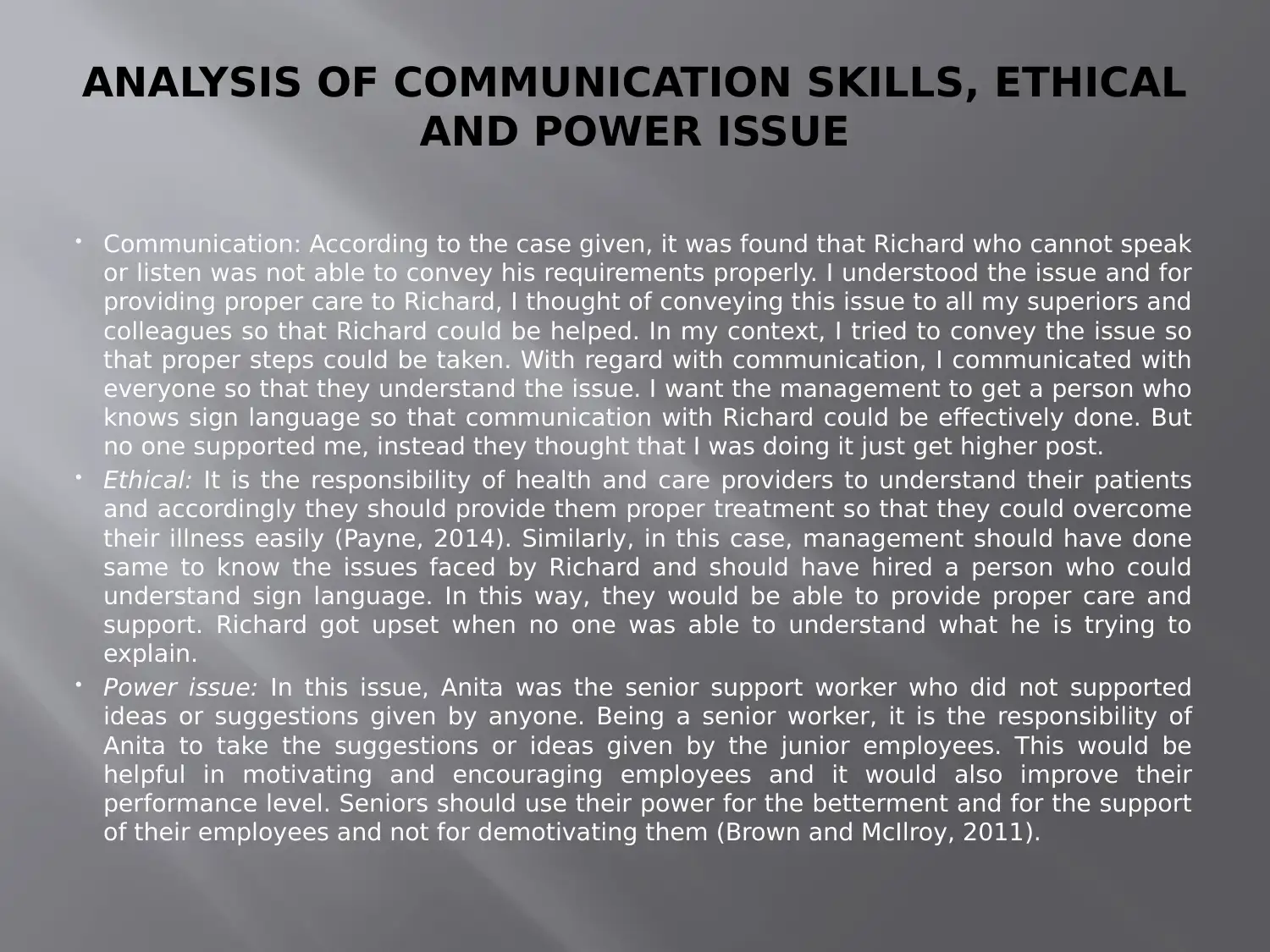
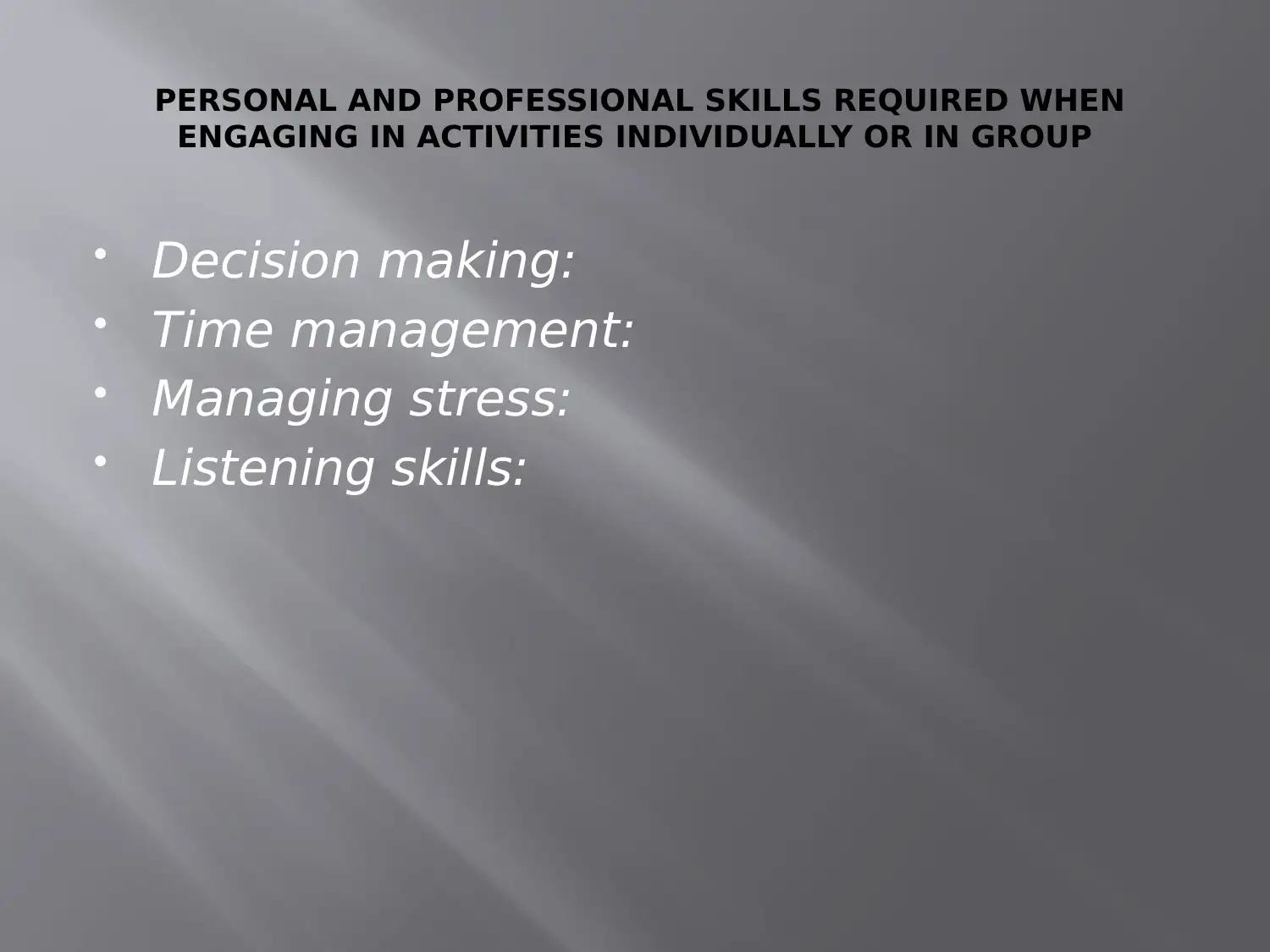
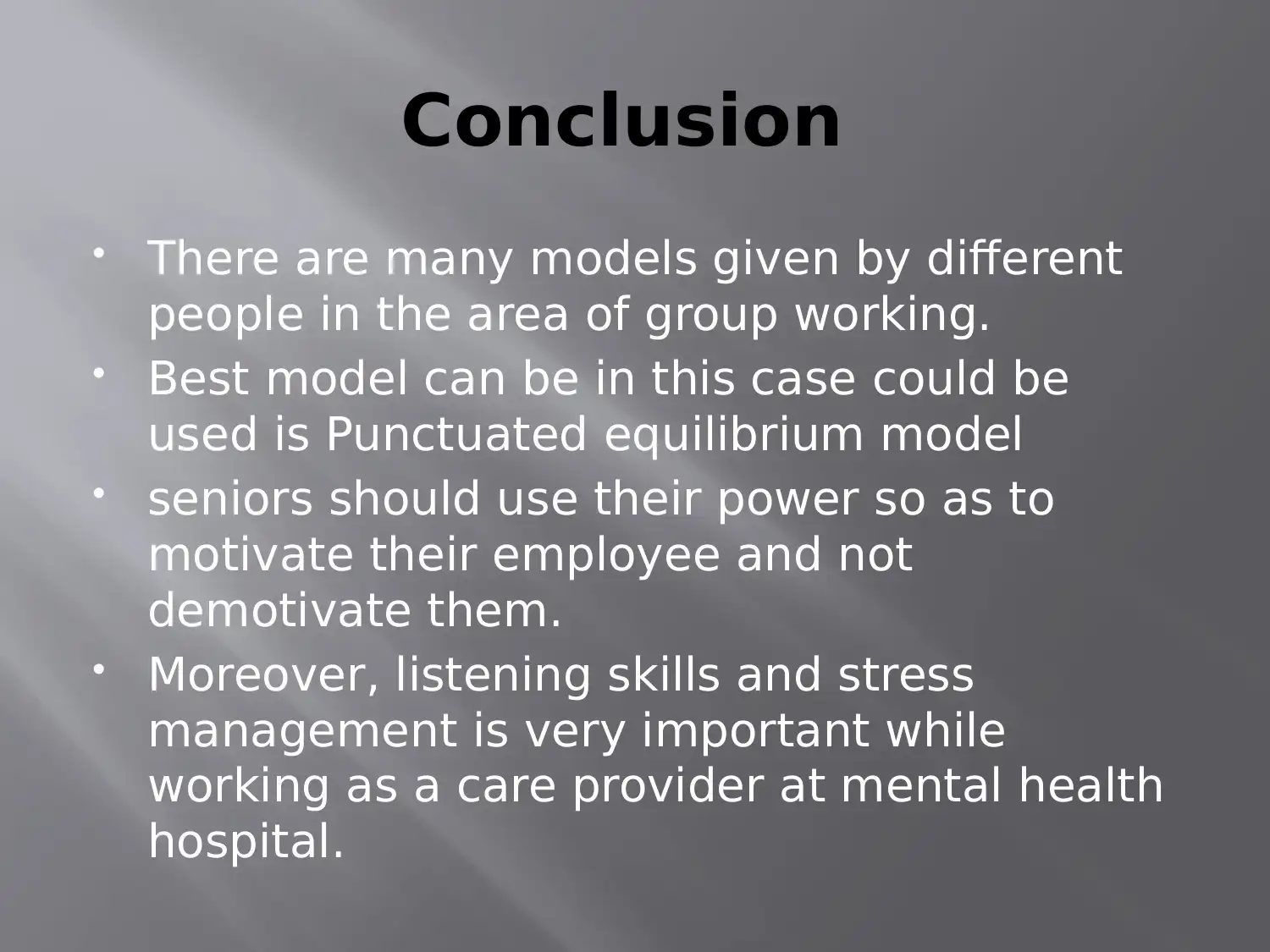
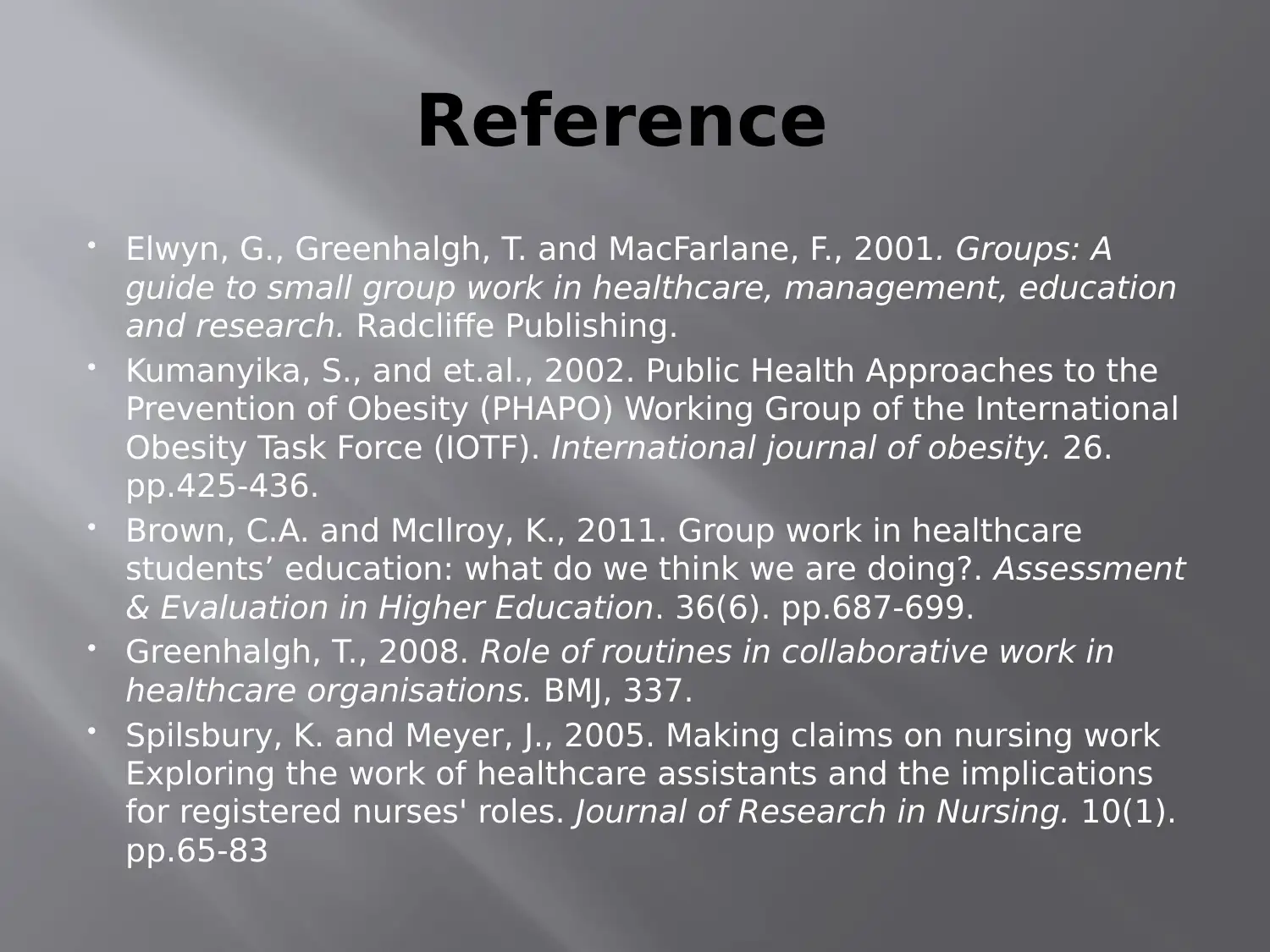





![[object Object]](/_next/static/media/star-bottom.7253800d.svg)